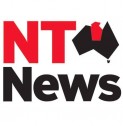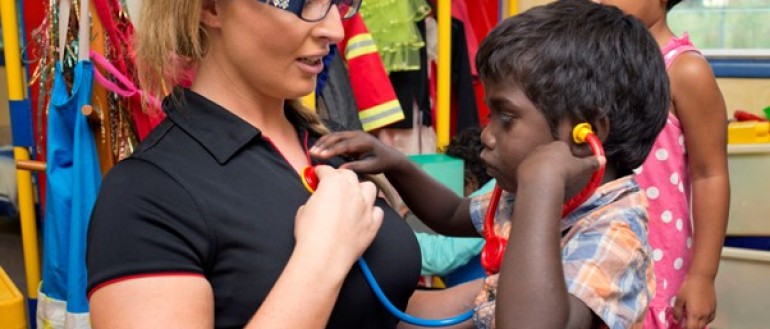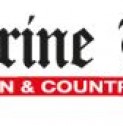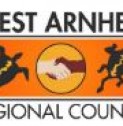Aims:
- To build a local research workforce and empower local residents in community-based participatory action research methods
- To foster a community with health literacy relating to acute rheumatic fever (ARF) and its complication, rheumatic heart disease (RHD).
- To improve the prevention, detection & management of ARF and antecedent streptococcal infections.
Summary:
OTW is a community-based participatory action research (CBPAR) project located at Yilpara (Baniyala) homeland which is situated on Blue Mud Bay in Eastern Arnhem land about 250 km from Nhulunbuy.
- prevent further RHD cases;
- strengthen community research knowledge and;
- collaboratively develop knowledge translation processes.
Implications for policy and practice:
Changing the way Aboriginal people are treated and represented in research is key to OTW. Aboriginal people will be empowered to develop solutions to control RHD in their community based on their own motivations. Findings will be disseminated to similarly-affected communities.
- how health information should be provided
- how self-management support should be delivered
- how research training builds community capacity to identify and address community health concerns
- how these can be embedded sustainably
Findings
The original aims of the study were to support the community to implement household-level changes to reduce transmission of streptococcal infection, focusing on household crowding and inadequate ‘health hardware’ (e.g. washing facilities).
Chief investigator
Investigators
- Alice Mitchell PhD Scholar, Menzies
- Emma Haynes PhD Scholar, UWA
- Djambawa Marawili, Traditional Owner, Yilpara
- Minitja Marawili, Senior Elder, Yilpara
- Mundiny-Mundiny Dhamarrandji, Senior Elder, Yilpara
- Bandarr Wirrpanda, Senior Elder, Yilpara
- Jeff Cook, Laynhapuy Homelands Aboriginal Corporation (Laynha)
- Dawn Bessarab, University of Western Australia (UWA)
- Clancy Read, Telethon Kids Institute (TKI)
Project manager
- Leanne Hampshire - Email contact | leanne.hampshire@menzies.edu.au
Project dates:
- 1 January 2016 – 20 June 2018
Funders:
- The University of Sydney - Rowan Nicks Russell Drysdale Fellowship
- The END RHD Centre of Research Excellence
- Bayer Australia Royal Australasian College of Physicians Medical Research Establishment Fellowship
Collaborators:
-
The fight against rheumatic heart disease continues into the new decade
Health experts from across Australia and New Zealand have teamed up with cultural advisors to address what they say is the greatest cardiovascular inequality between Indigenous and non-Indigenous Australians.
-
Partnership provides vital service to Maningrida
The provision of Orange Sky Australia free laundry facilities comes about following a study by Menzies School of Health Research.
-

Rheumatic heart disease discussed at national conference
Menzies School of Health Research senior research fellow Josh Francis said there was positive news when it came to RHD “in the sense that there’s a really good plan coming together”.
-
Top award for Noongar woman with nursing in her blood
The Senior | Vicki is senior cultural advisor with Rheumatic Heart Disease Australia, which is based at Darwin's Menzies School of Health Research.
-
Catchy new song could save thousands of children from deadly RHD
Indigenous children in Barunga have put together a catchy song in the hope it will save others from a crippling disease killing thousands.
-

Research offers hope for rheumatic fever sufferers
Northern Territory data has been used to prove that timely treatment for people with rheumatic fever reduces the risk of recurring illness and death.
-

OTW Capacity Building | Menzies Annual Report page 27
-

Community driven change: On Track Watch in Arnhem Land
The ‘On Track Watch’ project in remote northeast Arnhem Land is an innovative approach to community-driven control of acute rheumatic fever. Drawing on traditional knowledge and resources, Aboriginal community members will be supported to identify practical and clinically sound strategies to tackle their high rates of ARF and RHD.




